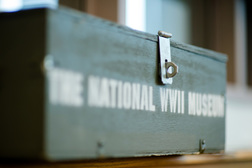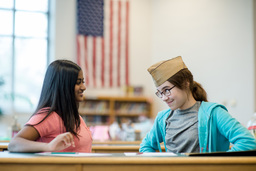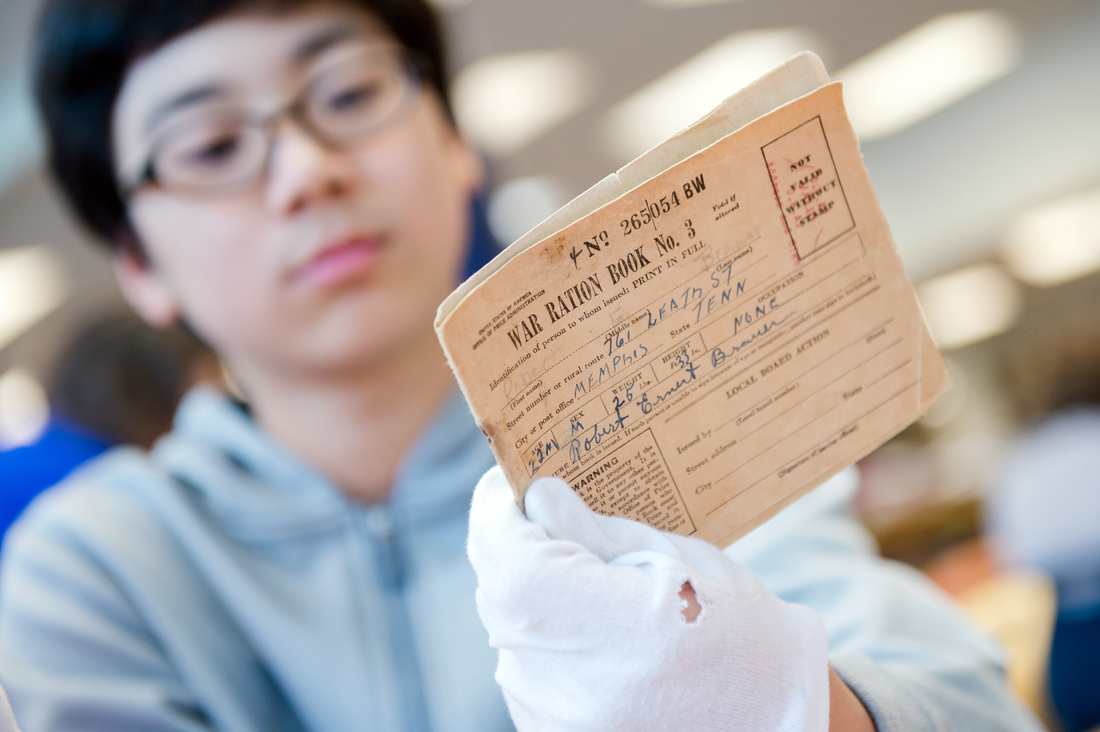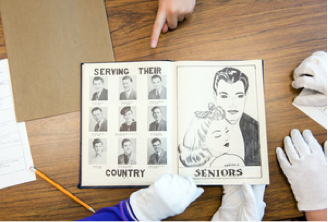I recently discovered that Robert Krulwich of NPR's Radio Lab podcast shares my love of objects and frankly, like me, can't understand how some people don't feel instant connections with artifacts. In fact, Krulwich was so sure that if he took his wife (someone who does NOT share our common love of artifacts) to the right place and let her hold the right object that she would have an "aha" moment and feel linked to the past. I'll let you listen to the episode yourself but -- SPOILER ALERT -- she feels NOTHING. As you can imagine, as a teacher and a librarian, Gretchen and I feel a tremendous need to impart this love of objects to our students, or at least to lead them to understand that objects (even if they don't fill us with joy and wonder) can connect us to our past in ways that textbooks cannot.  Photo by Donnie Biggs, FCPS Photo by Donnie Biggs, FCPS This week we were lucky enough to have the opportunity to be part of the National WWII Museum's Operation Footlocker. Ordered months in advance, a footlocker full of WWII artifacts arrived at our school ready for student exploration. Our team of history teachers in collaboration with Gretchen created an inquiry station based lesson that gave students the opportunity to explore these objects and work in teams to determine their importance in understanding the WWII era. As the students visited the library, Gretchen began with simple rules about how to handle these precious artifacts and then armed the students with prompts to guide them in their inquiry. We also stressed to the students that in this moment they were stepping into the role of historians.
We absolutely loved the way the lives of the objects' previous owners came alive as our students interacted with real pieces of history. Undoubtedly, all of the students learned more about WWII with this project and about the real work of historians. But perhaps more importantly, I'd like to think that some students discovered their "history sense," I could see it's power at work in some of them as they studied the artifacts with precision and care. They felt it, just like I feel it. They knew they were holding a piece of history and that it was magical. Yours, Corey Resources National Archives Artifact Analysis Tool for Students Kilmer MS's Operation Footlocker Object Analysis Handouts (option A | option B) Connecting Students to Artifacts Here are a number of institutions that we found which loan artifact collections to schools. Many of these collections are free to borrow and generally they are less than $100 (which usually covers shipping). National World War II Museum: Operation Footlocker Civil War Trust Traveling Trunk Mountain Heritage Center Traveling Trunks (Western Carolina University)
Note also that smaller, more local institutions often offer loans of specialized collections to schools in their vicinity. Reach out to nearby historical societies and museums! Artifacts and object kits are also available in other content areas to help students make connections in science, for example. The Burke Boxes from the Burke Museum cover archaeology, biology, and history. The Carnegie Museum of Natural History also offers kits across a wide range of topics in history, archaeology, and the sciences. You might also like:
0 Comments
Your comment will be posted after it is approved.
Leave a Reply. |
Who We Are
Join our list!Archives
September 2020
Categories
All
|









 RSS Feed
RSS Feed